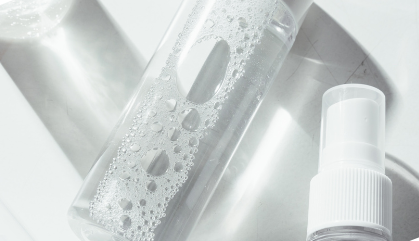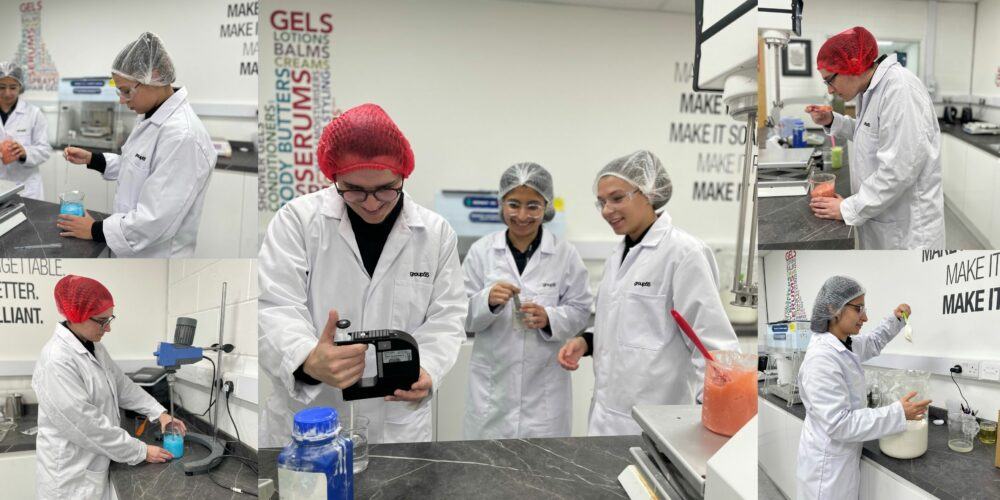February 15, 2023 | Lauren Grainger
The 8 biggest mistakes we see customers make when starting a skincare brand – Part 2
Read time: 6min

Welcome back to part 2 of the biggest mistakes we see customers make when starting a skincare brand! If you’re new here, you can read part 1 here.
So, we walked you through the first 4 mistakes we see brands make, let’s get stuck in with number 5…
5. Creating an in-cohesive product range
We’ve spoken a lot about what comes after creating the product range, but let’s take a step back again and think about the range of products that are being developed. All too often, we’ve seen customers start with one idea and as they’ve gone through the process they’ve tweaked and changed things so much that it’s no longer a range that makes sense and no longer appeals to their target customer. Sometimes this could be wanting to add more and more claims that involve more expensive ingredients which bumps the retail price up and out of the budget range for the consumer, or they try to make a product appeal to everybody to the point where it’s not unique enough to really appeal to anybody.
It’s vital to have a clear vision of who you want the product to be for, what you want it to do for them, and what price and position you want to have in the market. We recommend creating a customer persona(s) to understand who your target audience is right at the very start of your project and then as you make each decision for your brand, refer back to these and evaluate whether this is the right thing to do based on your target customer, Does it meet their needs? Does it hit the target price point? Do the claims align with their values?
Keeping the target customer at the forefront of your decisions will help keep the project on brief and give you the best chance of creating a cohesive product range that makes sense and appeals most to your target customer which will set you up with the best chance of success.
6. Ignoring the basic business requirements
Developing a skincare range and a brand can be very exciting, especially for creatively-minded people. However, sometimes sorting out trademarks, business insurance, regulation requirements, accountancy and logistics may not have the same kind of appeal – but these are fundamental areas of business that cannot be ignored!
This is the really important stuff to make sure that you’re doing things by the book, that you can process sales, you have the right trademarks, that you understand your cash flow and that you can manage stock levels, storage, and deliveries – if you don’t have these fundamentals well established then your business could be at risk and there are likely to be lots of hurdles and issues that arise that you’re not equipped to cope with.
We find that for most of our customers, the creative side of the project is right in their comfort zone, but that the more process or function-led areas are a bit more out of their area of expertise – which is absolutely fine! There are 3 main ways that can be addressed:
- You can learn what’s required and manage this.
- You can employ someone to manage these areas for you.
- You can work with third parties who specialise in these areas to manage this activity for you.
You should evaluate what route is going to work best for you and your business, but whatever you do, make sure you have a plan in place and don’t let these things get overlooked!
7. Over-optimistic business plans
You absolutely must be confident in your business and plan for success, why would you do it if you didn’t think it would be successful? However, it’s important to have realistic expectations so that you’re prepared for the scale-up rate of the business and don’t overextend yourself too early. We often ask our prospective customers ‘How many units do you expect to sell in the first year?’ we get all sorts of responses, but the way we like to have this discussion is to start with the number they give and then break that down to how many units will be sold per day. For example, say someone says they’ll sell 100,000 units in year 1, that breaks down to just under 275 units per day. We’ll then open up the discussion about what are you going to do to sell 275 units a day? What infrastructure will you have in place to make that happen? What advertising spend will you see to achieve that volume of daily sales? We often see that by breaking it down to a daily number, it helps to contextualise the big number and either ensure that the right infrastructure is in place to achieve that year 1 goal, or more often it leads to an adjustment in that target year 1 figure.
It’s important to have a realistic and accurate forecast so that you can plan your resources, budgets, production runs and marketing campaigns to align. A good manufacturing partner can be key to having these conversations and helping to guide you in your plans and ask the questions that you may have otherwise not thought about to ensure that your planning and forecasting is taking you in the right direction and setting you up for successful growth.
8. Choosing an unreliable partner
This is one of the more heart-breaking mistakes to see and it’s one of the most crucial things to get right! There are a huge number of contract manufacturers that have the ability to produce a product, but the service levels, quality levels and advisory support that is on offer from these companies can vary astronomically. Choosing a great partner can help accelerate your brand and choosing the wrong partner can result in huge issues for your business. When looking for the right manufacturing partner explore the following areas:
- What advice and guidance can they give you along the way?
- Can they offer you a full service to meet your needs?
- What experience & expertise do they have?
- Do their values align with your brand’s values?
- What are their quality assurance standards?
- What is their communication like?
Your manufacturing partner is responsible for making your product. The foundation of your brand. So you need to be confident in your choice that they will communicate with you effectively, produce and maintain the highest standards of quality and that they will be there to advise and support you as you start your journey and throughout your growth.
We truly hope that our experience in seeing these mistakes play out helps other brands and aspiring entrepreneurs avoid the same when starting out on their ventures. This is truly an exciting industry and there is so much potential for brands to flourish if they’re well-prepared and have the right support network. What this boils down to is preparation and planning, at the very start of your venture consider the following – What are the expectations and aspirations for your brand? What is going to make you different? What help do you need along the way? And then go from there…









